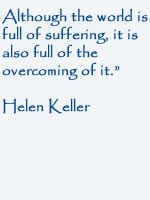Depression is often experienced as an intense heaviness of mood and a loss of enjoyment in more and more aspects of your life. Depression can and often does include feelings of anxiety, hopelessness and being overwhelmed. It doesn’t seem to lift no matter what you do, and has possibly gone on for some time. It is not the same as just temporarily feeling 'down', which some people may experience from time to time for short periods.
You may find that you no longer enjoy activities you used to and even the simplest tasks are too much effort and leave you exhausted. This sense of overwhelm and exhaustion has been described as the feeling of trying to keep too many balls submerged in the water at once. These balls are the feelings and thoughts that are causing you pain, and it is the effort of keeping them down that is draining all your energy.
Depression can be a response to the present, and to living a life of little or no rewards.
Depression can be reactive, a response to a recent loss or a recent very negative experience.
Depression can also be one of the ways you learnt to look after yourself when very young in response to the circumstances of your childhood, including trauma. Due to the very limited choice of responses you had as a child, it was a way to take care of yourself the best you knew how. But it has now outlived its usefulness.
Whichever type of depression you are experiencing, it can be understood and treated.
1. Do something small.
While these simple things won't cure depression on their own, they are ways to begin to start interrupting it. When you are depressed, the chemicals in your brain and body, especially those that contribute positively to mood, aren't working properly. Dopamine and serotonin levels are low, and endorphins are not being released. Doing small simple things like going for a walk or spending time with others are the first steps to recovering and getting these neurotransmitters in balance again. Even if being social or going for a walk is the last thing you feel like doing.
2. Practice Mindfulness.
At its most basic, mindfulness is sitting and focusing your attention on your breathing, for even five or ten minutes a day. When your mind turns to your concerns or your depressive symptoms, as it surely will, you bring your attention back to your breathing. For five or ten minutes, this is the only thing you have to concern yourself with. You are learning to give your mind a rest. Over time doing this should help you feel calmer. There are many resources, books, CDs etc on mindfulness.
3. Engage your senses.
Find things you used to enjoy, even if you don't enjoy them right now, and do them. From something as simple and easy as sitting in the sun and eating a piece of fruit, to soaking in a bath, or reading a book on the beach, find simple ways to soothe and take care of yourself that engage at least one of your senses and try to do two of them every day. This will help you re-connect with your body even if it is hard to kindle a sense of pleasure in these activities at the moment.
Depression: The Way Out of Your Prison. By Dorothy Rowe. An expert in her field, and a classic and helpful book for understanding depression through a psychodynamic approach.
The Dose Effect. By TJ Powers. This books focuses on the four neurotranmitters that impact our mood, motivation etc. This includes serotonin and dopamine, which are at low levels in those suffering from depression. It offers straightfoward explanations and evidence, and evidence-based behaviour changes and small habits that can have a positive impact on your levels of neurotransmitters and overall wellbeing.
The Reality Slap. By Russ Harris. Learn how to cope effectively when life hurts or causes anxiety. You can also download an MP3 of the exercises in the book, which can very useful for developing self-compassion and learning to address anxiety, stress and change.
A Mindful Way Through Depression: Freeing Youself from Chronic Unhappiness. [link] (Including Mindfulness CD). By Mark Williams, John Teasdale, Zindel Segal, and Jon Kabat-Zinn. Jon Kabat Zin is one the foremost experts in his field, and this is a useful, accessible discussion of depression and how to address it through mindfulness and increased awareness to interrupt the spiral of self doubt and negative thinking, rather than trying to think yourself out of it. This is also available on Audio CD.
Small Steps Free online tools to lift your mood. Mentemia is co-founded by Sir John Kirwan, providing practical tips and techniques to help you manage stress, build resilience and feel happier day to day.



